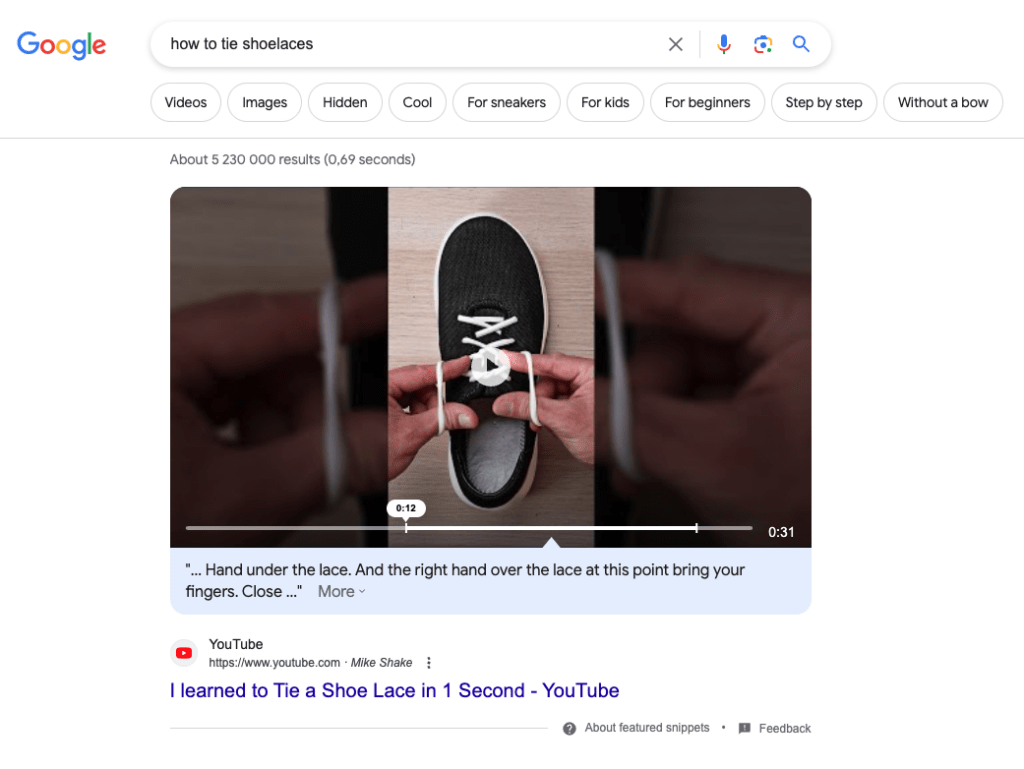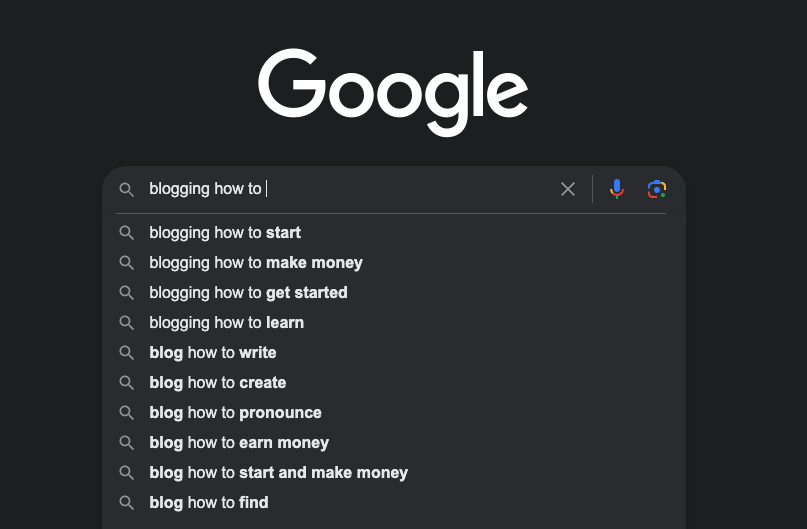The short answer: Write as long as it takes to write the best post about that topic on the internet.
Based on my experience, this usually means between 1 and 10 hours, very roughly speaking.
But remember. It’s not about the length of the post or the time it takes to write it.
It’s all about providing value.
If your blog post is not the best post about your topic, it won’t rank high.
In this guide, I will give you an idea of how long it usually takes to write a successful blog post. Also, I will show you how to make blog posts rank with a simple, non-technical strategy I’ve used on all of my blogs.
Let’s jump into it!
Finding the Time It Takes
Before I write blog posts, I always want to know what it would take to create the best post about my topic.
If it’s a competitive niche and the writing would take days, I might just skip the topic.
But also, sometimes blog posts aren’t even meant to rank high. Instead, they’re there to boost the overall credibility and diversity of a website, which is equally as important.
Here are two things to keep in mind when considering the time it takes to write a blog post.
#1 Be the Best
To rank high on search results, Google needs to consider your blog post the best piece of content about that topic.
They don’t consider the time spent crafting a post. They rank content based on its relevance, depth, and usefulness to the reader.
Creating a blog post that ranks high on search results isn’t just about racing against the clock. It’s about striking the right balance between efficiency and quality.
Sometimes, you may be able to create an impactful blog post in just a few hours.
In contrast, some topics may demand weeks of research, writing, and refinement.
In highly competitive niches, the bar is set high. You need to invest more time to create a post that truly stands out.
Basically, if you want your blog post to rank high, it needs to be the best post about that topic on the entire internet.
And what do I mean by “best”?
By doing a Google search, you can easily see what Google considers the best. Just open up the search results and see what those authors have done. 🙂
Usually, the best posts are actionable, very long, and illustrative. More about this later in the post!
#2 Not All Posts Need Time
Not every blog post needs to rank high, though!
Consider this: you have a fitness blog and you want to write a post about “What is fitness?”
This topic is broad, and basic, and has been extensively covered by numerous established sites. It’s highly unlikely that a new site will be able to outrank these established posts.

Should you abandon the idea? Not at all.
Having a well-rounded blog means you need to cover the fundamentals.
If it’s a fitness blog, an explanation of what fitness is should definitely exist on your site.
Such posts may not generate massive organic traffic, but they serve as valuable resources that you can reference in your other posts.
Creating this type of “content that doesn’t need to rank” can be short. Spend between 30 to 60 minutes to whip up a concise yet comprehensive overview of the topic.
The aim here isn’t to outperform other posts in search engine rankings but to establish a foundational knowledge base for your readers.
Just remember that these types of posts won’t get visitors from Google!
Typical Blog Post Workflow
Let’s consider how your typical competitors usually write blog posts.
More often than not, top-ranking blog posts are written by freelancers.

Companies don’t want to spend weeks crafting a post and spending thousands on it. Instead, they hire freelancers to write the post for $100-$500 (based on my experience).
Usually, this means those blog posts are written in a couple of hours or at most in one day.
This gives you a nice ballpark estimate for what you should expect to spend on a post as well. It’s from a couple of hours up to a day.
I’d estimate that 95% of blog posts I’ve written took 3-6 hours from start to finish.
But naturally, it all depends on the niche.
In competitive niches, some blogs might spend weeks on a post. They gather data, do analysis, and put it in an understandable and digestible format, which takes a lot of time.
But on the other hand, in low-competition niches, it might be enough to write a post in only 1-2 hours.
👷 I usually write 1-2 posts per day, which means I spend about 4-5 hours writing a piece.
I also have posts that only took 30 minutes to write. But then I also have posts that took days or even weeks to write.
Don’t Spend Too Much Time
Don’t spend too much time writing a blog post.
This is because there’s no guarantee that it will rank high on search results.
Usually, the more informative, visual, and actionable the post, the better the chances. But that’s not something you can take for granted.
What Google considers the “best post” varies in different topics.
Sometimes it’s not a blog post at all. Instead, it might be a video or an image that ranks high.

Anyways, generally, it’s those super long and detailed posts that do well.
If I only had 1,000 hours to build a blog, I’d write 300 posts to it (~3 hours per post).
Thoroughly covering a niche, these posts create a strong network and build authority. 🌐
Having 300 niche-specific posts means visitors would find answers to most questions. 🔍
And Google trusts sites that cover a niche from A to Z – leading to high rankings. 📈
How to Write the Best Post?
I’ve written a more comprehensive blog post on how to write blog posts.
But to put it short, the idea of a successful blog post these days is to save your audience from having to do research.
A successful blog post needs to solve a problem.

Here’s a quick checklist for writing a blog post:
- Find a topic related to your niche or topic. Use Google suggestions for this.
- Do the research. Read multiple sources. Make sure that your blog provides unique insights.
- Lay down the talking points by creating headings and subheadings.
- Write the sections. Use short paragraphs to make it look nice on mobile. Also, use bulleted lists, numbered lists, and tables.
- Use illustrative images that support the learning. Use your own images that you’ve taken as much as you can.
- Add alt texts to your images. This makes the posts accessible to those who listen to your posts instead of reading them.
- Create a featured image. This is what shows up when sharing the post on the internet.
- Create a compelling title. Use numbers if applicable. Use title case.
- Publish the blog post.
- Link the post to other posts on your site to build a network of related posts. Only link to truly related resources that might benefit the reader.
Wrap Up
And that’s a wrap!
Spend exactly as long as it takes to make a blog post the best post about that topic on the internet.
Usually, it’s more than 1 hour but less than 10 hours—but don’t let that time range limit yourself.
To build a successful blog, you need to write a ton of posts. You need to cover your niche entirely and leave no stone unturned. This way, you build trust and authority in the eyes of Google. And this is what helps you rank blog posts high on search results.
Thanks for reading. Happy writing!
